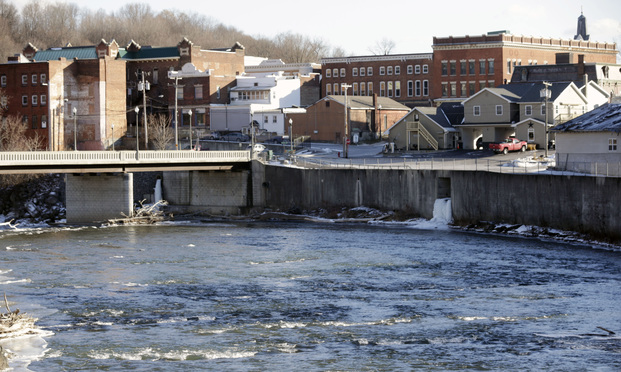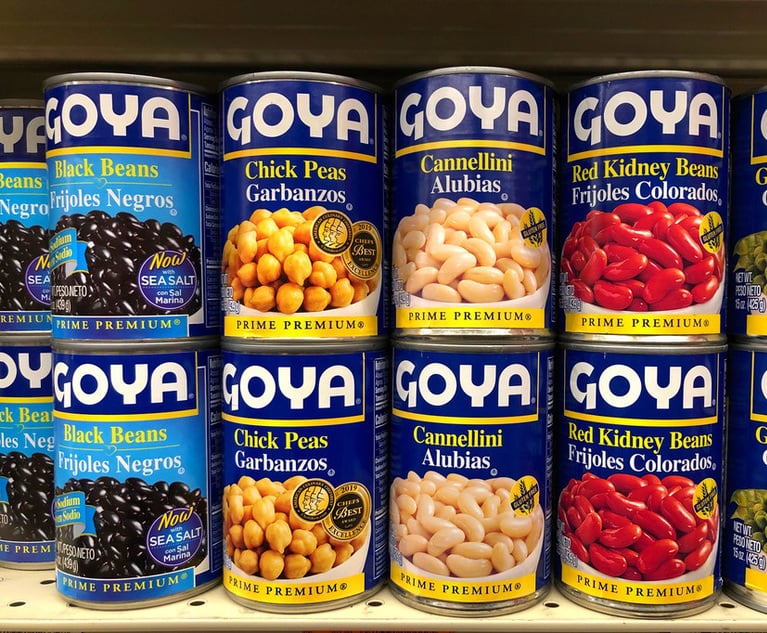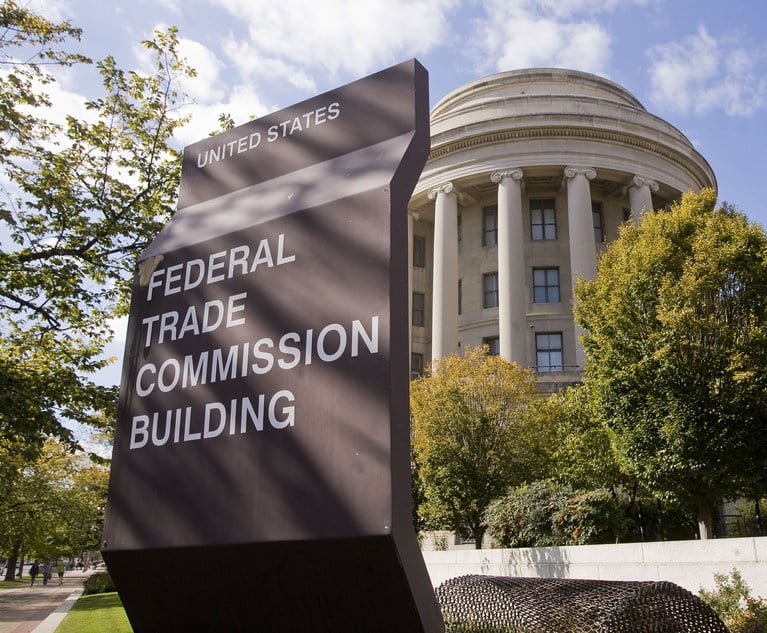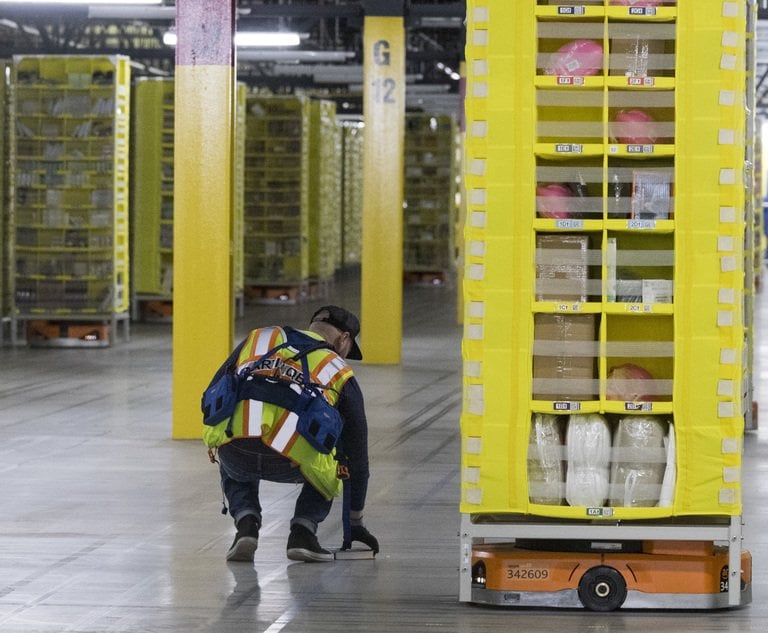2nd Circuit Allows Personal Injury, Property Damage Claims Against Honeywell, Saint-Gobain
The panel held that residents' allegations of elevated PFOA levels in the blood were sufficient grounds for personal injury claims, which, if proved, could entitle them to costs of medical monitoring.
May 18, 2020 at 06:15 PM
4 minute read
 In this Jan. 21, 2016, file photo, the Hoosic River runs through the village of Hoosick Falls, New York. (AP Photo/Mike Groll, File)
In this Jan. 21, 2016, file photo, the Hoosic River runs through the village of Hoosick Falls, New York. (AP Photo/Mike Groll, File)The U.S. Court of Appeals for the Second Circuit on Monday allowed residents of Hoosick Falls to proceed with a lawsuit alleging that Honeywell International Inc. and Saint-Gobain Performance Plastics Corp. contaminated their water supply with toxic chemicals from a factory in the upstate New York town.
A three-judge panel upheld a federal judge's ruling that green-lit personal injury and property damage claims against the firms over perfluorooctanoic acid contamination of private water wells.
The panel held that residents' allegations of elevated PFOA levels in the blood were sufficient grounds for personal injury claims, which, if proved, could entitle them to costs of medical monitoring.
PFOA, also known as C8, is a toxic man-made chemical linked to serious health problems, including certain cancers.
U.S. District Judge Lawrence E. Kahn of the Northern District of New York denied motions by Honeywell and Saint-Gobain to dismiss 16 consolidated lawsuits by Hoosick Falls residents, who claimed that high levels of PFOA exposed them to increased risk of illness and caused their properties to lose value.
The companies argued on appeal that New York tort law bars personal injury claims based solely on elevated PFOA levels, with no allegations that plaintiffs are currently suffering from some disease.
"With reasonable inferences being drawn in favor of plaintiffs, the allegation that their blood shows PFOA levels that are 'elevated' also indicates that the PFOA is present to a degree that is measurable," Judge Amalya L. Kearse wrote on behalf of the panel.
"The observable and measurable presence of that toxin in the blood clearly passes the … threshold for what constitutes personal injury sufficient under New York law to ground a tort cause of action," Kearse said.
She was joined in the decision by Judges Rosemary S. Pooler and Susan L. Carney.
The panel also turned away the companies' argument that because groundwater is a public resource, rather than private property, underground contamination could not form the basis of claims for negligence and strict liability. The panel also upheld claims of nuisance and trespass in the case.
Attorneys for both sides did not immediately respond to requests for comment.
The plaintiffs are represented by Stephen Schwarz of Faraci Lange in Rochester and Hunter Shkolnik and Tate Kunkle of Napoli Shkolnik.
Honeywell is represented by Michael Daneke and Elissa J. Preheim of Arnold & Porter Kaye Scholer in Washington, D.C., and Jennifer R. Kwapisz from the firm's New York office.
Saint-Gobain is represented by Sheila L. Birnbaum, Mark Cheffo, Bert Wolff and Lincoln Davis of Dechert.
Read More:
City, State Govt. Lawyers Back Liability for Landlords Who Ignore Racial Harassment by Tenants
Goldman Sachs Asks for En Banc Rehearing of Class Certification Ruling
2nd Circuit Judges Doubt NY Immigrant Licensing Law Exposes County Clerk to Federal Prosecution
This content has been archived. It is available through our partners, LexisNexis® and Bloomberg Law.
To view this content, please continue to their sites.
Not a Lexis Subscriber?
Subscribe Now
Not a Bloomberg Law Subscriber?
Subscribe Now
NOT FOR REPRINT
© 2025 ALM Global, LLC, All Rights Reserved. Request academic re-use from www.copyright.com. All other uses, submit a request to [email protected]. For more information visit Asset & Logo Licensing.
You Might Like
View All

'Strong' Legal Theory or 'Oxymoron'? Experts Eye FTC Antitrust Suit Against Mattress Merger
5 minute read

Manhattan Federal Judge Allows Breach of Fiduciary Duty Claim to Move Ahead Against Amazon
Law Firms Mentioned
Trending Stories
- 1Thursday Newspaper
- 2Public Notices/Calendars
- 3Judicial Ethics Opinion 24-117
- 4Rejuvenation of a Sharp Employer Non-Compete Tool: Delaware Supreme Court Reinvigorates the Employee Choice Doctrine
- 5Mastering Litigation in New York’s Commercial Division Part V, Leave It to the Experts: Expert Discovery in the New York Commercial Division
Who Got The Work
J. Brugh Lower of Gibbons has entered an appearance for industrial equipment supplier Devco Corporation in a pending trademark infringement lawsuit. The suit, accusing the defendant of selling knock-off Graco products, was filed Dec. 18 in New Jersey District Court by Rivkin Radler on behalf of Graco Inc. and Graco Minnesota. The case, assigned to U.S. District Judge Zahid N. Quraishi, is 3:24-cv-11294, Graco Inc. et al v. Devco Corporation.
Who Got The Work
Rebecca Maller-Stein and Kent A. Yalowitz of Arnold & Porter Kaye Scholer have entered their appearances for Hanaco Venture Capital and its executives, Lior Prosor and David Frankel, in a pending securities lawsuit. The action, filed on Dec. 24 in New York Southern District Court by Zell, Aron & Co. on behalf of Goldeneye Advisors, accuses the defendants of negligently and fraudulently managing the plaintiff's $1 million investment. The case, assigned to U.S. District Judge Vernon S. Broderick, is 1:24-cv-09918, Goldeneye Advisors, LLC v. Hanaco Venture Capital, Ltd. et al.
Who Got The Work
Attorneys from A&O Shearman has stepped in as defense counsel for Toronto-Dominion Bank and other defendants in a pending securities class action. The suit, filed Dec. 11 in New York Southern District Court by Bleichmar Fonti & Auld, accuses the defendants of concealing the bank's 'pervasive' deficiencies in regards to its compliance with the Bank Secrecy Act and the quality of its anti-money laundering controls. The case, assigned to U.S. District Judge Arun Subramanian, is 1:24-cv-09445, Gonzalez v. The Toronto-Dominion Bank et al.
Who Got The Work
Crown Castle International, a Pennsylvania company providing shared communications infrastructure, has turned to Luke D. Wolf of Gordon Rees Scully Mansukhani to fend off a pending breach-of-contract lawsuit. The court action, filed Nov. 25 in Michigan Eastern District Court by Hooper Hathaway PC on behalf of The Town Residences LLC, accuses Crown Castle of failing to transfer approximately $30,000 in utility payments from T-Mobile in breach of a roof-top lease and assignment agreement. The case, assigned to U.S. District Judge Susan K. Declercq, is 2:24-cv-13131, The Town Residences LLC v. T-Mobile US, Inc. et al.
Who Got The Work
Wilfred P. Coronato and Daniel M. Schwartz of McCarter & English have stepped in as defense counsel to Electrolux Home Products Inc. in a pending product liability lawsuit. The court action, filed Nov. 26 in New York Eastern District Court by Poulos Lopiccolo PC and Nagel Rice LLP on behalf of David Stern, alleges that the defendant's refrigerators’ drawers and shelving repeatedly break and fall apart within months after purchase. The case, assigned to U.S. District Judge Joan M. Azrack, is 2:24-cv-08204, Stern v. Electrolux Home Products, Inc.
Featured Firms
Law Offices of Gary Martin Hays & Associates, P.C.
(470) 294-1674
Law Offices of Mark E. Salomone
(857) 444-6468
Smith & Hassler
(713) 739-1250






